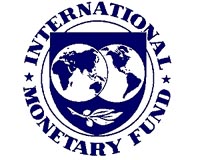| . |  |
. |
Geneva (AFP) Jan 20, 2010 The world economy will bounce back in 2010 with growth of 2.4 percent but could slump back into recession if state stimulus spending is wound up too early, the United Nations said Wednesday. The UN's preliminary report on the "World Economic Situation and Prospects 2010" cautioned that a "premature" removal of state support could trigger the second part of a "double dip recession" after last year's contraction. World gross product fell by an estimated 2.2 percent in 2009, UN economic bodies estimated in the report. "Premised on a continued supportive policy stance worldwide, a mild growth of 2.4 percent is forecast" for 2010, the report added. "Mild" growth of five percent in world trade volume was forecast for this year, after falling by a record 13 percent last year. The UN warned that the recovery was uneven and conditions for sustained growth were fragile, with consumer demand and investment remaining weak as unemployment continued to rise, especially in wealthy nations. It cautioned against any early move by governments to unwind a total of about 2.6 trillion dollars of economic stimulus measures for 2009-2010 in the wake of the financial and economic crises. "The rebound in domestic demand remains tentative at best in many economies and is far from self sustaining," the report said. "Much of the rebound in the real economy is due to the strong fiscal stimulus provided by governments in a large number of developed and developing countries." Industry was also restocking inventories it had run down during the crisis, reviving production, the report added. An additional 20 trillion dollars of taxpayers' money was set aside to rescue the financial sector after the credit crunch toppled major banks, the UN noted. It also tempered optimism about the resurgence in stock markets. "The stronger than expected rebound in equity prices worldwide may belie the fact that there are still problems remaining in financial sectors in major economies which continue to constrain credit availability and could lead to more failures of financial institutions in the near future," the report said. The report indicated that developing and least developed countries had managed to sustain growth through the crisis, albeit at low levels, allowing them to recover much faster this year. The outlook for developed economies was more subdued, with average growth of about 1.3 percent forecast for 2010 after a decline of 3.5 percent last year. The UN predicted that China's output would grow by 8.8 percent in 2010, just 0.7 of a percentage point up on last year and still short of the double digit rates recorded in the years up to 2007. It also forecast growth of 2.1 percent in US output this year after a drop of 2.5 percent in 2009.
Share This Article With Planet Earth
Related Links The Economy
 IMF chief: Asia may have to act against new bubbles
IMF chief: Asia may have to act against new bubblesHong Kong (AFP) Jan 20, 2010 The IMF chief said Wednesday Asia may need to erect temporary capital controls among other measures to guard against the risk of new economic bubbles as speculative money floods into the region. Dominique Strauss-Kahn said the global economy looked on course to beat the 3.1 percent growth forecast currently expected by the International Monetary Fund for 2010, as a post-crisis recovery accel ... read more |
|
| The content herein, unless otherwise known to be public domain, are Copyright 1995-2009 - SpaceDaily. AFP and UPI Wire Stories are copyright Agence France-Presse and United Press International. ESA Portal Reports are copyright European Space Agency. All NASA sourced material is public domain. Additional copyrights may apply in whole or part to other bona fide parties. Advertising does not imply endorsement,agreement or approval of any opinions, statements or information provided by SpaceDaily on any Web page published or hosted by SpaceDaily. Privacy Statement |